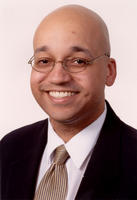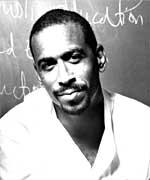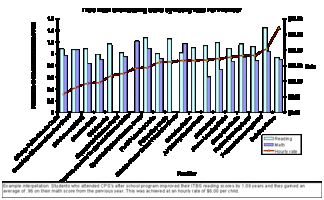I was reminded by seeing this dreamy illustration of the University of Chicago's hunky Tim Knowles that -- just as in the rest of the world -- there are some real hotties in school reform.

Yes, hotties in education. You know there are. You just don't want to admit it. That's why I'm here to say it for you.
And Knowles, director of the Center on Urban School Improvement, is one of them.
Not that there's anything wrong with it. It's not his fault. It's not yours. Just look at the guy. He looks like a movie star.
Physical attractiveness is an obvious, though rarely-stated dynamic that plays out just beneath the surface at even the most mundane conference, job interview, faculty meeting, or professional development session.
Add some real excitement to the mix -- a new initiative, funders in the room, TV cameras, or the intoxicating whiff of TFA -- and you might as well be in the VIP section of the hippest lounge. Or as close to it as school reform gets.
And, yes, looks matter -- even in education. You know they do. OK, maybe they matter a little more to me than they should, but I'm not alone. There've been studies. People behave differently around and towards the highly symmetrical and genetically blessed. Parents. Teachers. Administrators. Funders. Policymakers.
Now, nobody's suggesting that looks alone can get you to the top of the heap. There's lots of additional hard work, ridiculous luck, overconfident hand-waving, and shameless brown-nosing that's required for that. Or exceptional virtue and smarts.
And there probably aren't many educators who should quit their day jobs and head for Hollywood or the runways of Milan. After all, being hot for education circles is like what Wonkette (the blogging hottie) calls being "famous for DC." It's all relative.
Without further ado, the remaining four of my top five:
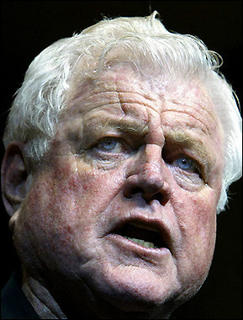
Hunk Emeritus. Even in his 70's,
Ted Kennedy is the epitome of the dashing education reformer. Virile, passionate, a Kennedy.
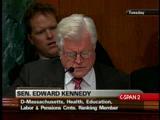

The Face That Launched TFA. For my money,
Wendy Kopp's tailored look and big smile are substantial parts of her success -- along with a great idea and mad skills.

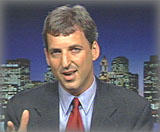
The Boy Wonder.
Jon Schnur, co-founder of New Leaders, can be pretty mesmerizing with his boyish grin and piercing gaze.

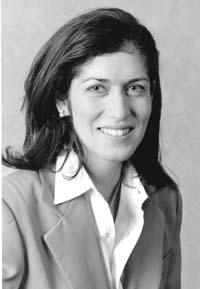
A Brunette Ann Coulter? I might not agree with the USDE's
Nina Rees about everything, but I'm not sure I care.
My criteria are admittedly loose (and by definition superficial). The person has got to be attractive enough that (a) it's widely commented on or alluded to, or (b) it's at least part of what you think about when you think about that person. They have to be nationally known. Oh, and Google has to cough up a picture of them so I don't have to search around too much.
Think you can do better? Have at it. Remember to include headshots along with any additional nominations.
ROLLING UPDATE: Anonymous nominations so far today include NYC Councilwoman extraordinaire Eva Moscovitz, Gates foundation guru Tom Vander Ark, the Heritage Foundation's Krista Kafer, and Rick Hess, who I am told "chicks dig." Comments, additions? Taking it all with the appropriate grace and grain of salt, Knowles reports that the above portrait is actually his evil twin. See "Hot For Education (Update)" for additional nominations.
 With 25,00 students, the school is the 8th largest private nonprofit university in the country, and the largest Catholic university. Two years ago, it was rated as having the students who were happiest with there university experience.
With 25,00 students, the school is the 8th largest private nonprofit university in the country, and the largest Catholic university. Two years ago, it was rated as having the students who were happiest with there university experience.
